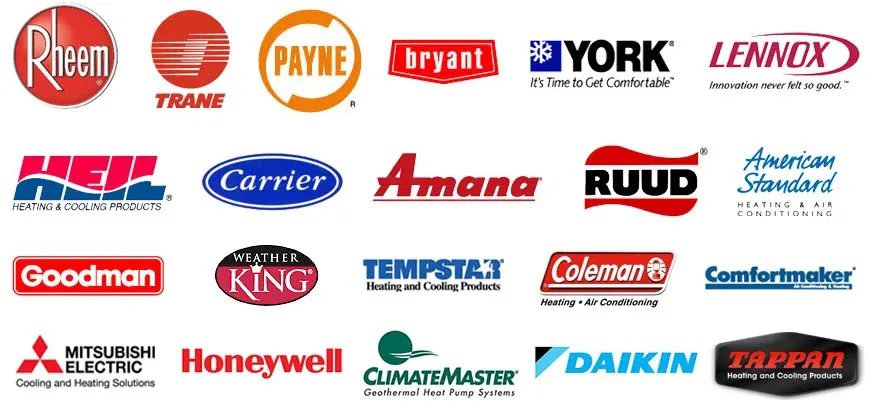22 Ranchers View, Okotoks, Alberta
Choosing the right A/C system and installer to fit your home and budget.

Pinpointing your home’s specific cooling needs while fitting an install into your budget can seem tedious. Researching online can become frustrating for homeowners. With so much information available including customer reviews, equipment spec sheets, government recommendations and of course pushy sales reps; finding pertinent information relating to your specific needs can be difficult. Let us guide you through some basic points every homeowner should pay attention to while shopping for both an A/C system and a reputable installer.
Choosing an Installing Contractor
Though the brand, model, efficiency and warranty of the system itself are important, nothing is more important than finding a qualified installer. The contractor who installs your equipment must have the experience and knowledge to size the equipment correctly to your home and existing Hvac system. They also require the skills to properly install, charge and start up your equipment to ensure it runs efficiently and effectively.
Find and use a Licensed Installing contractor
Hvac is a very broad trade covering many different aspects of your home including but not limited to; plumbing, gas fitting, heating, A/C and electrical work. Ask every installer to provide proof of their licensing. This will give you peace of mind that the job you’ve hired them for is in fact within their scope of work.
Check your perspective installer’s online presence and reputation
If you can’t find anything at all it’s time to move on. Any reputable contractor wants their work to be showcased on social media, a website or review sites such as HomeStars, yelp etc. If you can’t see their work online, you likely don’t want it affecting the curb appeal of your home!
A more expensive contractor doesn’t always mean a better installation
Every contracting company operates differently, some have high overhead and many employees to consider when quoting a job, while other companies may only have one or two employees. Many smaller companies are able to offer more affordable rates due to a low day to day overhead. Don’t confuse a low rate with a sub par install. Do your research, search out their previous jobs, ask your contractor to show you a comparably priced job that they recently completed. This should give you a good idea of what kind of an install you are paying for.
Make sure your installer is insured
It seems like a no brainer, but insurance is extremely important for both the homeowner and installer during any home upgrade or renovation. Contractors are people too and unfortunately they sometimes make mistakes. A/C installations require brazing and welding inside and outside your home, electrical work and the use of hazardous materials, chemicals and equipment. Protect yourself and your home by only using contractors who are licensed and insured.
Choosing the right equipment.
Pick a well known, trusted brand
Most major A/C brands offer many different models of outdoor A/C units. Choosing the right one to fit your home can be difficult. Before you start doing your own research reach out to some installing contractors and ask for opinions on their preferred brands. As installers we have the expertise and answers you're looking for. Use us to your advantage! Every installer has their own opinions on the major brands and models available so take the info they provide and start researching.
Ask yourself what your main concerns are regarding a new system.
Noise level, efficiency rating, physical size, warranty and product track record should all be in the forefront of your mind. However, there are a few things you may not have thought of. Does the brand you're considering purchasing have a distribution centre in Calgary or southern Alberta? If not, consider choosing a brand that does. In the event of a part failure during warranty it could take weeks to have your specific part shipped to Alberta, leaving you and your family in an uncomfortable situation. Find out about a company's warranty claim process. Is the installing contractor responsible for filing a claim or are you? How long does the average claim take to process? These questions make the difference between a quick fix or a brutal cycle of paperwork that can last weeks.
Do I need a high efficiency unit?
A/C outdoor condensing units are classified based on their SEER rating (Seasonal Energy Efficiency Rating). Units range anywhere from 13 SEER to 26 SEER depending on the brand and model. So, what is the SEER rating? The SEER rating of a unit is the cooling output during a typical cooling season divided by the total electric energy input during the same period. The higher the unit's SEER rating the more energy efficient it is. Another factor to considering about the SEER rating is the unit noise level. The higher the SEER, the quieter the unit. Higher SEER units use more energy efficient compressors and condenser fan motors. This dramatically reduces the noise output of the unit. It’s important to recognize that as the SEER rating goes up so does the physical size of the unit. Higher SEER units need more surface area to expel the heat from your home through the outdoor unit. For example: a 16 SEER Lennox condensing unit is about twice the size of a 13 SEER Lennox unit. If space is an issue you may want to consider sticking to a lower SEER unit.
Are higher SEER units Worth it?
Ask yourself what kind of investment you're really looking for. Running a 13 SEER air conditioning system during a very hot month in Alberta will run your electrical bill up about $50.00/month compared to cooler months when your A/C system is not in operation. Running a 16 SEER unit drops that cost about 20% to approx. $40.00/month. The real impact comes from the premium product lines offered by most brands. Example: the Dave Lennox Signature Series product line offered by Lennox boasts a truly variable capacity compressor, allowing for precision cooling to within 0.5 degrees of set-point at all times. These units are rated up to 26 SEER.
With an operational cost in Alberta estimated at $12.00/month, the precision balanced outdoor fan motor along with the variable capacity compressor provide comfort on a level unmatched by any other product available. It's important to remember that premium product lines & higher SEER units are quite a bit more expensive in upfront equipment costs than lower SEER units. You will eventually see a return on investment due to lower power consumption, and advanced engineering reducing service and repair costs, but it can take some time. Taking all these factors into account can help you pick the SEER rating that’s right for you.
Does more expensive mean a better system?
The short answer is...well Yes and No. It really depends on what you're looking for in a system. When it comes to your basic affordable "just keep me cool" products there are only slight differences between Name Brands and Value Brands. These differences are generally in the over-all construction of the units. Copper tubing wall strength in the outdoor condensers, commercial grade electrical components rather than residential grade, and the gauge of steel used in the outdoor unit shell are some examples of these differences. Take Lennox for example, they are one of the most recognized and trusted Hvac brands in the world. They undoubtedly make great equipment. Because of their brand recognition and track record they are considered a premium brand. This moniker is well deserved, with decades of R&D and engineering development Lennox sets themselves apart as an industry leader and innovator. However, Lennox like many other brands have sub-brands or value brands which offer more affordable options. Lennox’s sub-brand is called Aire-Flo. Aire-Flo systems are $300.00 - $2000.00 lower in cost than comparable Lennox Merit Series units even though they use the exact same fan motor and compressor found in the Lennox Merit Series units.
On the other hand, the condenser tubing in Aire-Flo products has a thinner wall, over time this could result in potential refrigerant leaks that would not occur with a Merit Series unit. The steel used in the outdoor unit shell of the Aire-Flo equipment is 3mm thinner than in a Lennox Merit Series unit and the electrical components are sub-par compared to what Lennox Merit Series units offer. They are however made in the Lennox factory in Texas and are supplied with Lennox’s 10yr limited parts warranty. Sub-brands are a good way for top brands like Lennox to offer more affordable Hvac products without devaluing their own brand. It really depends on what you are looking for in a system. A little more expense upfront may be worth looking into if your investment in your home is going to be long term. If your living situation may be changing soon you may want to consider value over long-term performance for the time being.
What about the Warranty?
Most major brands offer the same warranty as their competitors. The standard warranty package is a 5yr limited parts, 1yr labour warranty. Most systems can be upgraded to a 10yr limited parts warranty with the online registration of the equipment. This warranty extension can only be granted if both the indoor and outdoor units are sized correctly to both each other and your existing Hvac system. The system must also be installed by a licenced contractor to qualify. Take all these things into consideration when picking both your equipment and installer. If the equipment you’re considering does not offer a free extended warranty package you may want to consider why not. If your installer doesn’t mention an extended warranty package or says that your equipment doesn’t come with one, do the research and confirm.
If they are unable to offer the extended warranty it probably means they are not qualified to install it. An important note to remember about warranty is that premium product lines often offer better parts warranties than more affordable product lines. Example: The Dave Lennox Signature Series product line offers a 10yr ltd parts warranty which includes the compressor. Compare this to the Lennox Elite Series line which only offers 1 year warranty on compressor and 10 years on all other qualifying parts. Factors like this should help you determine what kind of an investment you want to make in your home's Hvac system.
Trust the Installer
It can be difficult to let go of the reins and trust someone else with such a big purchase. If you feel confident in your research of the installing contractor, you should allow them to guide you through the choice of a system that’s right for you and your home. Installers spend years honing their skills, both in school and through on the job training and experience. Chances are they know what is, or is not going to be the best system to fit your needs.
Final Thought
A new A/C installation is a big purchase that will affect you and your home for many years to come. Take the time to ask questions, do some research and narrow down the wide variety of options available to you. Find an installer you feel comfortable with and work with them to select a system that fits your specific needs. Do your due diligence, make sure your installing contractor is insured and qualified before you let them do any kind of addition or renovation to your home. Finally, enjoy your A/C system. Use it as you please and remember to set up a yearly maintenance plan to ensure your system runs as efficiently and effectively 5 years down the road as it did they day it was installed.


Privacy Policy
We want our visitors to this website to always be aware of any information we collect, how we use it, and under what circumstances if any, we disclose it.
We respect your right to personal privacy. To that end, we collect and use information through our website only as disclosed in this Privacy Policy. This statement applies solely to information collected on this website.
We do not automatically gather any personal information from you, such as your name, phone number, or e-mail address. This information is only obtained if you supply it voluntarily, usually through contacting us by e-mail.
Any information that we may collect is:
- Used to respond to your request for information or services
- Used to improve the content of our Web page
- Never shared with other organizations for commercial purposes
- If we publish a newsletter, we will not sell or share our subscribers’ email addresses. If we operate online surveys, we will not sell or share our subscribers’ email addresses.
If we decide to change our privacy policy, we will post those changes to this privacy statement.
If site users have any questions regarding our privacy policy, please contact us today.
Whether it's installing a new AC, Furnace, Water Heater, or Garage Heater or service on your existing equipment, we're here to help!



